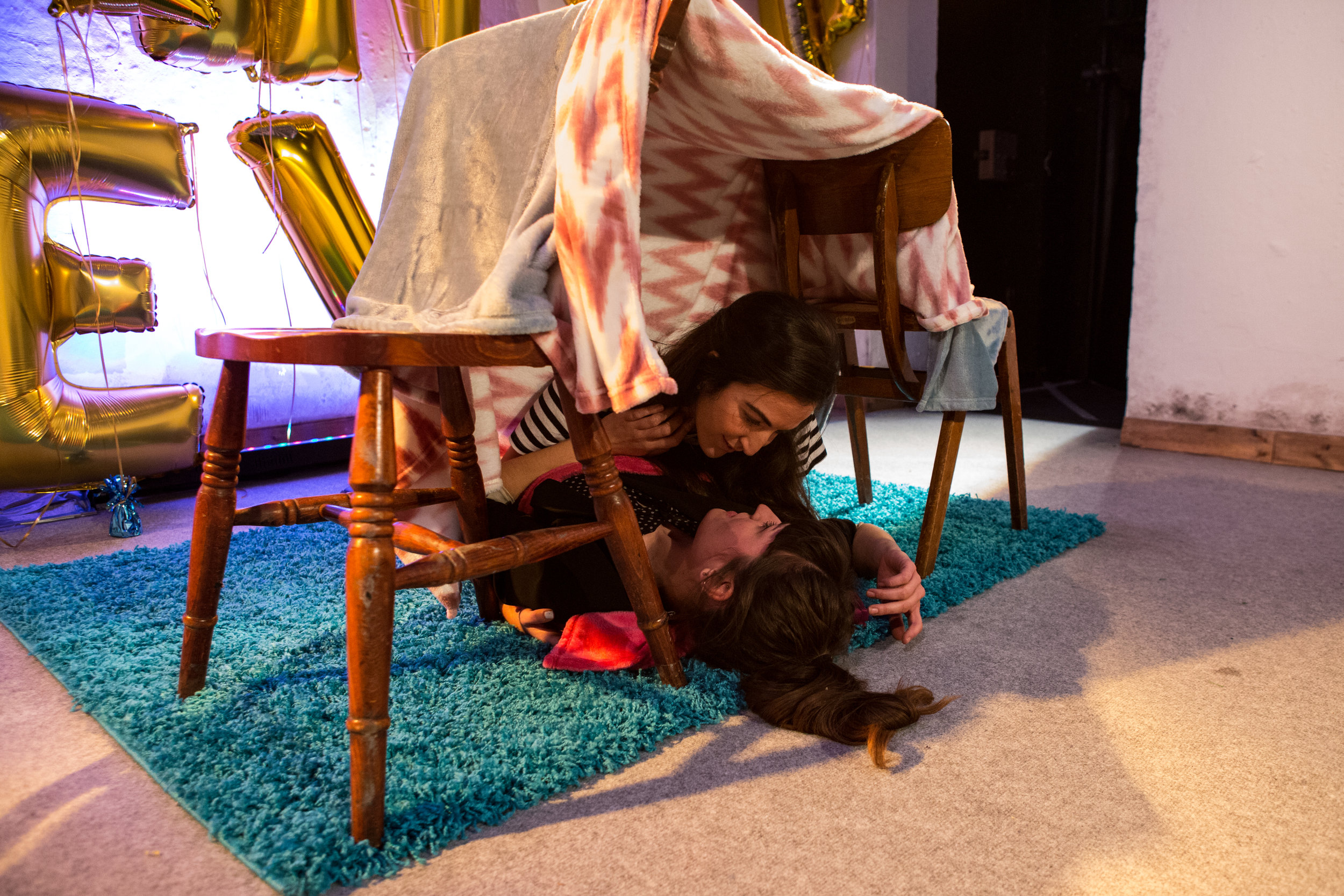'Snapper Theatre': Footlight Feminists
‘Snapper Theatre’ brand themselves as ‘feminist theatre-makers and storytellers embracing the universal and specific’. Aiming to delve deeper into this provocative and inclusive claim, I caught up with one of the founding collaborators, Lucy Foster, to learn more about ‘Snapper’s theatrical and political aims, and their latest venture: Lobster.
The company is formed of ‘an incredible collaboration between Kayla Feldman, Julia Mucko and [Lucy Foster]’, a team of London-based creatives who ‘all respect one another and their creative decisions’. Since first meeting in October 2016, in a writer-to-audience-member capacity, these women took ‘seven drafts and numerous readings’ to reach their first collaborative performance in June 2017. From there, colleagues became friends and they ‘knew that [they] wanted to keep making theatre together’. The fact that ‘[they] all consider [them]selves feminist’ was an added bonus to glue to company together!
Foster explains how ‘as with all things, the story has to come first’, as audience engagement is what leads to ‘relating to the experience [and] learning from it’; relating to characters is ‘the start of everything’. But, attaching a political agenda to these stories, she explains how ‘following things such as the incredible #MeToo movement of 2017 and Vicky Featherstone topping the Stage 100 list, it feels like this is our time, as women, to tell our stories’.
Having said that, ‘Snapper Theatre’ are not a selective or all-female collective. To be so would risk ‘excluding some of the stories that are important for [them] to tell’. As such, they are proud and appreciative to work alongside male members of their design team (Foster gives shout-outs to Jamie Simmons and Joseph Ed Thomas), as well as members of the theatres that welcome them (namely, at Theatre503, Jake Orr and Andrew Shepherd). Beyond company members, Foster explains how they ‘don’t necessarily want to focus [their stories] on just women, but also non-binary people’. Indeed ‘the same stories that ['Snapper'] want to tell, as feminists, for women, are stories that are just as important for men’.
Following on from the company ethos, to focus on ‘telling stories that are not often told and finding new ways of telling them’, I enquired about what this important statement meant in real terms. Foster expanded: 'Very often, the LGBTQ plays that we see in theatre are focused on gay men or discuss specific LGBTQ issues. Of course these stories are essential to tell, but they are tiny puzzle pieces in a huge story.’ Championing collaborative principles, Foster even quoted ‘Snapper’ director Kayla Feldman’s words in place of her own: "Why can't we have the [LGBTQ] rom coms? Why can't we have the love stories?”
Their first play as ‘Snapper’ is Lobster, written by their very own Lucy Foster. Although this is Foster’s ‘first full-length professional production’, she confesses to having been writing plays for a decade - a scary length of time for any young creative! Progressing from National Theatre New Views, through a creative writing degree at Warwick, a playwriting course with ‘The Royal Court’ and productions with ‘Old Red Lion’, ‘Bread and Roses’, ‘Tristan Bates’ and ‘Seven Dials Club’, this writer is far from anything amateur!
Lobster tells the story of ‘J’ and ‘K’; originally written as a love story between a man and a woman, it was ‘cast gender blind’ and is now a universal tale which ‘could belong to anyone, regardless of their gender and sexuality’, and just so happens to be between two women. Foster describes: ‘this is the same story that is so often told, but it's a new way of telling it because this story belongs to two women. It shouldn't be out of the ordinary for this to appear on a London stage, but it is so rare, and that's why it's so important for us to tell it.’
Lobster, the play-script, has its own story to tell: Foster explains how, back in January 2016, she ‘was listening to Spotify and an old favourite came up on shuffle: Your Ex-Lover is Dead by Stars.’ The lyrical narrative ‘stuck with [her] throughout the day’ and soon evolved into a ten-minute play for Short(s) Wave, at the ‘Old Red Lion’. It was important for Foster ‘to tell a story that felt recognisable, where the audience could relate to the characters and the dialogue felt real’. She explains how all her writing pursuits aim to fulfil this brief, marrying the ‘universal’ and the ‘specific’ that ‘Snapper Theatre’ promise: ‘I actually find that one of the best ways for a story to feel universal is for you to get specific with the details: Who are these people? What makes them tick? What makes them laugh and cry?’ This ultimately leads an audience to (hopefully) feel that ‘these aren’t my jokes, but they could be. We could be these people’.
A culmination of all of this (political principles, training, new friends, feelings and questions) Lobster ‘has been centred around collaboration’ and promises to be ‘an intimate and heart-breaking new comedy’. For Foster, it is key to ‘have a balance of light and dark’, to build rapport and ‘laugh alongside’ characters who you then watch ‘fall apart’. She also reminds us that ‘feminists are definitely funny too!’.
‘Snapper Theatre’ are already looking ahead to future projects, with a clear desire to ‘continue to explore stories on stage - from verbatim theatre to spoken word’. I, for one, am excited to follow this enthusiastic start-up, and heed Foster’s warning to ‘watch this space!’.
Lobster plays at Theatre 503 (SW11) from 9-20th January. So SNAP up your tickets here: https://theatre503.com/whats-on/lobster/
Lobster rehearsal photos. Photo Credit: Ali Wright










